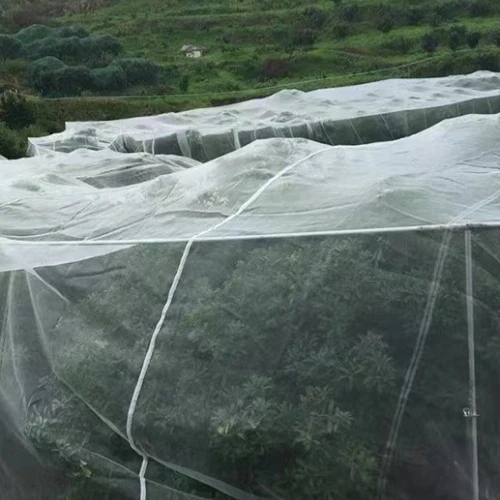-
 Afrikaans
Afrikaans -
 Albanian
Albanian -
 Amharic
Amharic -
 Arabic
Arabic -
 Armenian
Armenian -
 Azerbaijani
Azerbaijani -
 Basque
Basque -
 Belarusian
Belarusian -
 Bengali
Bengali -
 Bosnian
Bosnian -
 Bulgarian
Bulgarian -
 Catalan
Catalan -
 Cebuano
Cebuano -
 China
China -
 Corsican
Corsican -
 Croatian
Croatian -
 Czech
Czech -
 Danish
Danish -
 Dutch
Dutch -
 English
English -
 Esperanto
Esperanto -
 Estonian
Estonian -
 Finnish
Finnish -
 French
French -
 Frisian
Frisian -
 Galician
Galician -
 Georgian
Georgian -
 German
German -
 Greek
Greek -
 Gujarati
Gujarati -
 Haitian Creole
Haitian Creole -
 hausa
hausa -
 hawaiian
hawaiian -
 Hebrew
Hebrew -
 Hindi
Hindi -
 Miao
Miao -
 Hungarian
Hungarian -
 Icelandic
Icelandic -
 igbo
igbo -
 Indonesian
Indonesian -
 irish
irish -
 Italian
Italian -
 Japanese
Japanese -
 Javanese
Javanese -
 Kannada
Kannada -
 kazakh
kazakh -
 Khmer
Khmer -
 Rwandese
Rwandese -
 Korean
Korean -
 Kurdish
Kurdish -
 Kyrgyz
Kyrgyz -
 Lao
Lao -
 Latin
Latin -
 Latvian
Latvian -
 Lithuanian
Lithuanian -
 Luxembourgish
Luxembourgish -
 Macedonian
Macedonian -
 Malgashi
Malgashi -
 Malay
Malay -
 Malayalam
Malayalam -
 Maltese
Maltese -
 Maori
Maori -
 Marathi
Marathi -
 Mongolian
Mongolian -
 Myanmar
Myanmar -
 Nepali
Nepali -
 Norwegian
Norwegian -
 Norwegian
Norwegian -
 Occitan
Occitan -
 Pashto
Pashto -
 Persian
Persian -
 Polish
Polish -
 Portuguese
Portuguese -
 Punjabi
Punjabi -
 Romanian
Romanian -
 Russian
Russian -
 Samoan
Samoan -
 Scottish Gaelic
Scottish Gaelic -
 Serbian
Serbian -
 Sesotho
Sesotho -
 Shona
Shona -
 Sindhi
Sindhi -
 Sinhala
Sinhala -
 Slovak
Slovak -
 Slovenian
Slovenian -
 Somali
Somali -
 Spanish
Spanish -
 Sundanese
Sundanese -
 Swahili
Swahili -
 Swedish
Swedish -
 Tagalog
Tagalog -
 Tajik
Tajik -
 Tamil
Tamil -
 Tatar
Tatar -
 Telugu
Telugu -
 Thai
Thai -
 Turkish
Turkish -
 Turkmen
Turkmen -
 Ukrainian
Ukrainian -
 Urdu
Urdu -
 Uighur
Uighur -
 Uzbek
Uzbek -
 Vietnamese
Vietnamese -
 Welsh
Welsh -
 Bantu
Bantu -
 Yiddish
Yiddish -
 Yoruba
Yoruba -
 Zulu
Zulu
Choosing the Right Bolting Cloth for Effective Screen Printing
Understanding Bolting Cloth for Screen Printing
Screen printing is a popular technique that allows for the creation of vivid and intricate designs on various surfaces, including textiles, paper, and plastics. One of the vital components in the screen printing process is the bolting cloth, which serves as the mesh used for transferring ink onto the desired material. This article aims to delve into the characteristics, types, and applications of bolting cloth in the realm of screen printing.
What is Bolting Cloth?
Bolting cloth, also known as screen mesh, is a type of fabric that has been specifically engineered for use in screen printing. It is typically made from synthetic materials such as polyester or nylon, though some variations may also incorporate stainless steel threads for added strength and durability. The primary function of bolting cloth is to act as a filtration barrier, allowing ink to pass through the open areas while retaining the finer details of the screen design.
Mesh Count and Density
One of the most critical factors to consider when selecting bolting cloth for screen printing is the mesh count. The mesh count refers to the number of threads per inch in both the horizontal and vertical directions of the fabric. Generally, a higher mesh count indicates smaller openings, allowing for more detailed prints, while a lower mesh count facilitates the transfer of thicker inks and larger designs. Common mesh counts range from 20 to 305, with choices depending on the complexity of the design and the type of ink used.
For instance, finer meshes (such as 200 or higher) are ideal for detailed graphics and thin inks, making them suitable for apparel with intricate designs. Conversely, coarser meshes (such as 60-80) are more appropriate for bold designs or printing thicker inks, like those used for specialty effect inks.
Material and Durability
bolting cloth for screen printing

Bolting cloth is primarily manufactured from synthetic fibers due to their strength, flexibility, and ink compatibility. Polyester is the most commonly used material because it offers high tensile strength and is resistant to the deteriorating effects of chemicals and UV light. Nylon, while also durable, tends to stretch more than polyester and may not be suitable for all types of screen printing projects.
Moreover, the durability of bolting cloth is crucial. A high-quality bolting cloth will withstand multiple prints without significant wear and tear, ensuring production efficiency and quality. It is essential to choose a fabric that can endure the rigors of the printing process, including the sometimes aggressive cleaning methods employed to prepare the screen for new designs.
Applications in Screen Printing
The versatility of bolting cloth makes it suitable for various screen printing applications. It is used in industries like fashion, advertising, and product packaging. Custom t-shirts, promotional merchandise, and specialty prints all benefit from carefully selected mesh types to achieve desired results.
For artists and businesses looking to produce high-quality prints consistently, understanding the nuances of bolting cloth is essential. Custom screens can be designed depending on the specific requirements of each project, ensuring that the final product aligns with the intended design vision.
Conclusion
In conclusion, bolting cloth plays an indispensable role in the screen printing process. By understanding the different mesh counts, materials, and applications of bolting cloth, printers can make informed choices that ultimately impact design execution and product quality. As the screen printing industry continues to evolve, the significance of selecting the right materials, including bolting cloth, remains paramount for achieving exceptional print results.
-
Stainless Steel Mesh SolutionsNewsMay.06,2025
-
Protecting Your Farm with Smart SolutionsNewsMay.06,2025
-
Practical Mesh Solutions for Your Home and GardenNewsMay.06,2025
-
Nylon Mesh SolutionsNewsMay.06,2025
-
Fish Breeding Nets for AquariumsNewsMay.06,2025
-
Essential Mesh Solutions for ConstructionNewsMay.06,2025











